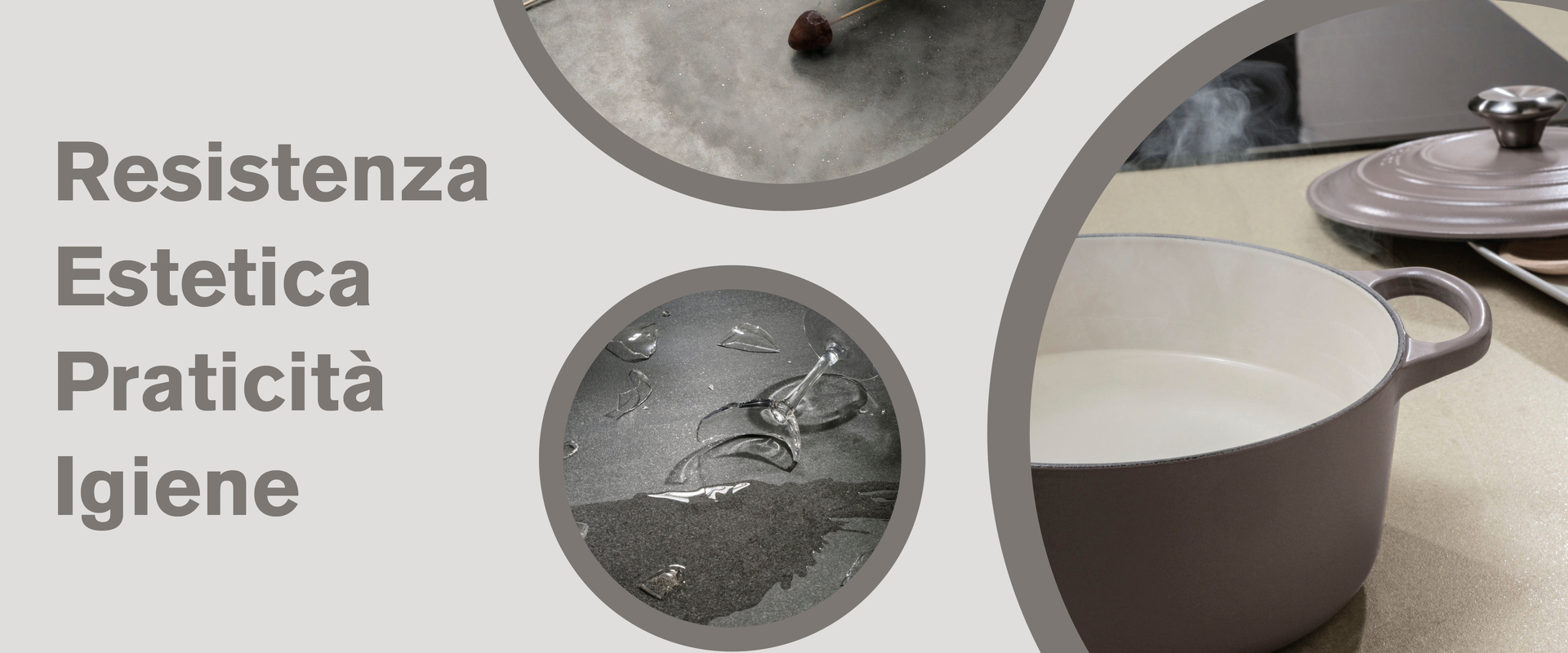
Not just a decorative element, a key feature of today’s kitchens.
The countertop or work surface is integrated into a variety of residential and retail spaces to create a convivial atmosphere appropriate for countless different experiences.
The choice of materials plays a key role in this context, for the kitchen countertop must offer a number of important features, including:
How to choose among the many different surfaces on offer?
Here’s a guide to help you choose the right kitchen countertop for you.
Let us look at the principal kitchen countertop materials available on the market today.
We may distinguish among the six most common materials:
Everyone knows that porcelain is a compact material made out of a blend of clays and feldspars. Increasingly green and sustainable in terms of composition, porcelain is a highly dependable surface adaptable to a great variety of uses.
Cons: An innovative material. Porcelain kitchen countertops are not yet common, though they are becoming more and more popular.
FIND OUT MORE ABOUT SAPIENSTONE PORCELAIN COUNTERTOPS
Made of layers of paper impregnated with thermosetting resins on a particleboard base. An inexpensive but not particularly long-lasting material, especially in the kitchen.
Pros of the laminate kitchen countertop
Cons:
Kitchen countertops made of marble, granite or other stones offer outstanding aesthetic features, often associated with an apparently elegant style. These materials come from mountain quarries and therefore follow the forms of nature and the land.
Pros of the marble or granite kitchen countertop
Cons:
Quartz agglomerates are made out of a mixture of minerals, polymers, pigments and resin. Quartz countertops are available with a variety of aesthetic finishes, though there have not been many new developments in this type of material in recent years.
Pros of the quartz kitchen countertop
Cons:
Corian® kitchen countertops are made of natural minerals and acrylic resin with the addition of coloured pigments.
Pros of the Corian® kitchen countertop
Cons:
Okite® is a combination of polyester resin, quartz and natural pigments. The presence of quartz gives Okite® hobs qualities of resistance and durability.
Pros of the Okite® kitchen countertop
Cons:
The kitchen countertop materials examined here offer different, sometimes even opposite features in terms of structure and performance.
The majority of them are easy to clean and require little maintenance.
Having said this:
In view of these parameters, porcelain is the material best responding to the requirements of use in the kitchen: its great resistance to temperature differences, scratching and stains and the availability of finishes reproducing the effect of numerous different materials make it the number one material for the kitchen countertops of the future.
SapienStone produces and sells porcelain kitchen countertops offering innovative technical and aesthetic properties: design, integrated induction cooker technology and “full-body” composition make SapienStone’s exclusive offering different from the products commonly sold on the market.
Are you working on a kitchen project, and would you like more information about SapienStone countertops? Tell us what you have in mind